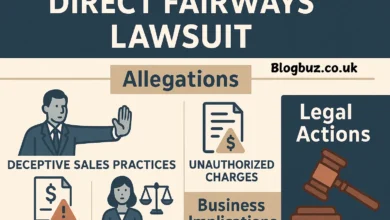From Sole Trader to Limited Company: How Your Tax Obligations Will Change

When your business develops and grows, you may find that incorporating as a limited company is one of the most important decisions to take. The reason many entrepreneurs begin trading alone is that it is easy and requires less investment. But when your company’s income increases and you need to handle business more formally, becoming a limited company makes sense.
However, when you become a limited company, a lot of changes occur, especially in the way you handle business taxes. All the profits from your sole trader business are subject to your personal tax. Unlike a sole trader, Corporation Tax is paid on the profits of a limited company and you have to pay tax only on the income you are paid by the company.
The blog follows a discussion on Sole Trader vs Limited Company and explains the new taxes and methods of long-term savings that arise when you decide to incorporate.
1. Sole Trader vs Limited Company: The Key Differences
- Legal Structure and Liability
If you are a sole trader, your business and you are treated as the same by the law. Therefore, you must pay off any debts and responsibilities yourself. Should your business close, your debts might affect your own assets.
A limited company, unlike a sole proprietorship, is established as a separate business entity. Because of this distinction, your personal funds are protected from company debts if you respect the requirements of the law.
- Taxation Approach
When operating as sole traders, business-people need to pay Income Tax and National Insurance on their earnings. While corporations are taxed on all profits from the company, there are further taxes if profits are withdrawn either as salaries or dividends.
- Administrative Requirements
Sole traders enjoy minimal paperwork. Limited companies, however, must file Annual Accounts, submit Corporation Tax returns, maintain Satutory Registers, and comply with Companies House reporting.
- Flexibility and Control
While sole traders have complete autonomy, limited companies must follow specific governance processes. Yet, incorporation opens doors to better tax planning, brand credibility, and future scalability.
2. Tax Obligations as a Sole Trader
Being a sole trader involves a relatively straightforward tax process:
- Income Tax
When taxing an LLC, the business’s profits are included as personal income. After deducting the government-permitted expenses, the profit is added to the person’s total income and taxed using the individual Income Tax bands.
For 2024/25, Income Tax rates in England are:
- 20% on income between £12,571 and £50,270
- 40% on income between £50,271 and £125,140
- 45% on income above £125,140
- National Insurance Contributions (NICs)
- Class 2 NICs: You will pay the weekly fixed amount of £3.45 if your profits are above the small profits threshold of £6,725.
- For Class 4 NICs, you pay 6% of your profits (between £12,570 and £50,270) and 2% of profits that go above this amount.
- Self-Assessment
Self-assessment is necessary; you should submit your tax return each year and ensure taxes and NICs for the tax year are paid by 31 January.
- VAT
Registering for VAT and filing VAT returns every quarter is necessary if your taxable turnover is greater than £90,000 (from April 2024/2025).
Summary: As a freelancer, it’s easier to manage your taxes, though you could ultimately pay more tax as your pay rises.
3. Tax Obligations as a Limited Company
Incorporating a business introduces a more structured and regulated approach to taxation:
- Corporation Tax
Corporation Tax is paid by a limited company on its profits after deducting the expenses it is allowed for business. Currently, the main rate of Corporation Tax is 25%, although businesses that earn less than £50,000 might pay 19%.
- Director’s Salary
As a company director, you can draw a salary, which is subject to Income Tax and employee/employer National Insurance via PAYE. You can structure this salary below the personal allowance threshold to minimise tax.
- Dividends
You may also take dividends from company profits (after Corporation Tax). These are taxed separately from salary:
- 8.75% (basic rate)
- 33.75% (higher rate)
- 39.35% (additional rate)
The dividend allowance for 2024/25 is £500, down from £1,000 in the previous tax year.
- VAT
The same rules apply as with sole traders—compulsory registration once your turnover exceeds £90,000.
- Payroll and PAYE
If you pay yourself or others a salary above the National Insurance threshold, you must set up PAYE and report earnings to HMRC via Real-Time Information (RTI).
- Filing Obligations
- Annual accounts to Companies House
- CT600 Corporation Tax return to HMRC
- Confirmation Statement and other statutory documents
Summary: Taxation for limited companies is more complex but offers the potential for tax-efficient profit extraction and strategic reinvestment.
4. Corporation Tax Explained
Corporation Tax is the most significant new tax obligation when you incorporate.
What It Is
Corporation Tax is a tax on the taxable profits of a UK company. This includes:
- Trading profits
- Investment income
- Chargeable gains (e.g., selling business assets)
Who Pays It
Every UK limited company must pay Corporation Tax, regardless of size.
Rates (2025)
- 19% on profits up to £50,000 (small profits rate)
- 25% on profits above £250,000
- Marginal relief applies between £50,001 and £250,000
Allowable Expenses
You can deduct various legitimate business costs before calculating tax—these include salaries, office rent, marketing expenses, pensions, and professional fees.
Filing Deadlines
- Pay Corporation Tax within 9 months and 1 day of your financial year-end.
- File the Corporation Tax return (CT600) within 12 months of year-end.
Failure to comply results in penalties, interest charges, and potential audits.
5. Financial Planning: What Changes?
- Personal vs Business Income
As a sole trader, your business income is your personal income. As a director, you receive income separately from company profits—via salary or dividends.
- Optimising Salary and Dividends
A common approach is to take a low salary (within the personal allowance) and extract the rest as dividends to minimise Income Tax and NICs.
- Business Expenses and Pension Contributions
Limited companies can contribute to directors’ pensions as a deductible business expense. It reduces the Corporation Tax bill while boosting long-term financial security.
- Retaining Profits
Unlike sole traders, companies can retain profits without paying additional personal tax, allowing for reinvestment or future dividend payments.
Key Insight: Strategic financial planning is crucial after incorporation to fully realise tax efficiencies.
6. When Is the Right Time to Incorporate?
Incorporation may be appropriate if:
- You’re earning over £30,000–£40,000 in annual profits—Corporation Tax may be more favorable than higher Income Tax rates.
- You’re scaling the business and need investment or plan to hire employees.
- You want to protect personal assets through limited liability.
- You’re working with clients who prefer dealing with incorporated entities for contractual reasons.
However, keep in mind the increased administrative burden, regulatory compliance, and potential costs of accountancy services.
Final Thoughts
Before deciding to become a limited company, you should consider your earnings, future goals and desire to handle paperwork. The variations in taxes are significant. As a sole trader, your whole profit is taxed as your personal income. In contrast, a limited company must pay Corporation Tax on its profits and both directors and shareholders get taxed on their shares separately.
There are other factors to consider besides taxation when making your choice between being a sole trader and setting up a limited company. Before choosing to incorporate, you should seek advice from financial professionals. An accountant will advise you on the best way to handle taxes and avoid problems when transferring countries.
Partner with CoxHinkins Accounting Services for a Smooth and Tax-Efficient Business Transition
As you consider transitioning from a sole trader to a limited company, having the right financial partner is essential to navigate the changing tax landscape. CoxHinkins Accounting Services is here to support your journey with expert guidance on income tax, Corporation Tax, dividend planning, VAT, payroll, and compliance. Whether you’re seeking greater tax efficiency, limited liability, or long-term growth, our experienced team offers tailored outsourcing solutions in audit, accounting, personal and business tax, company secretarial, and more—both in the UK and internationally. With the latest technologies and a commitment to your success, we simplify the complexities so you can focus on scaling your business with confidence.
Ready to take the next step in your business journey? Make sure your tax strategy grows with you.




